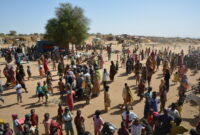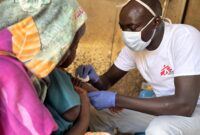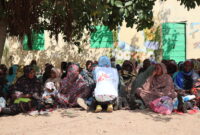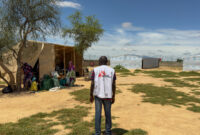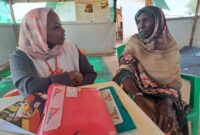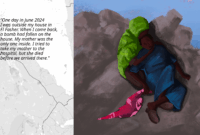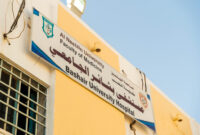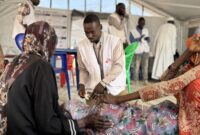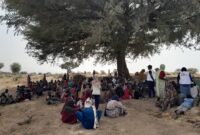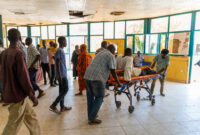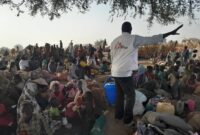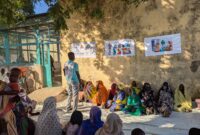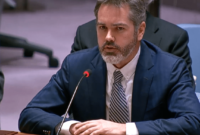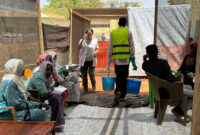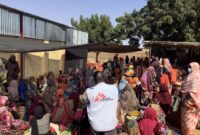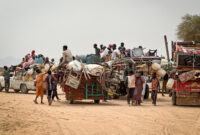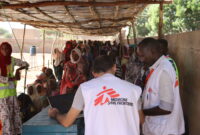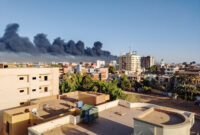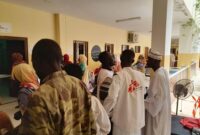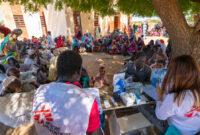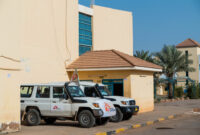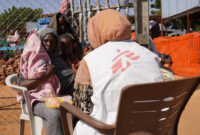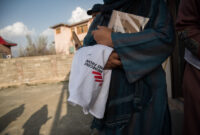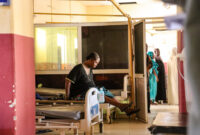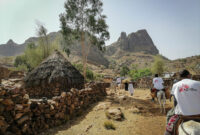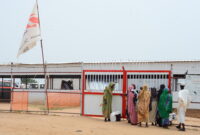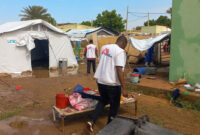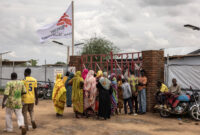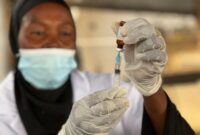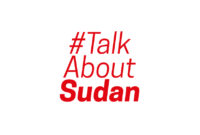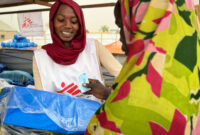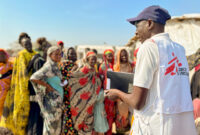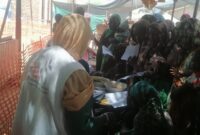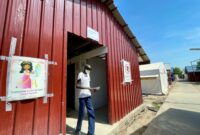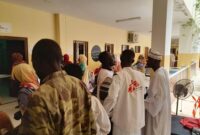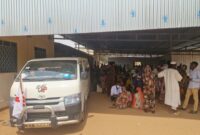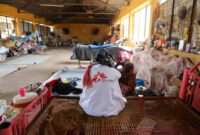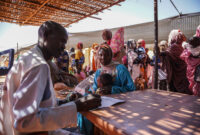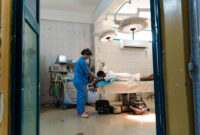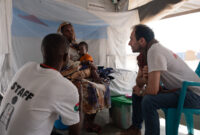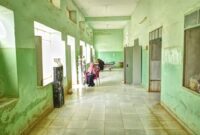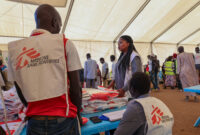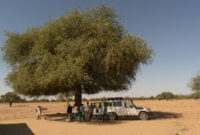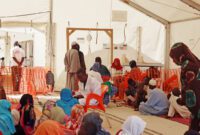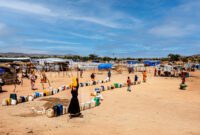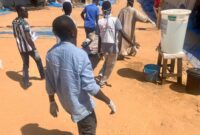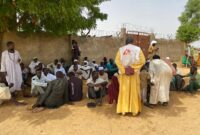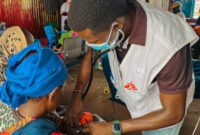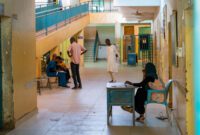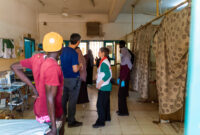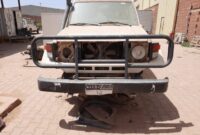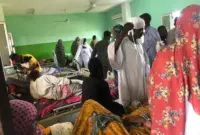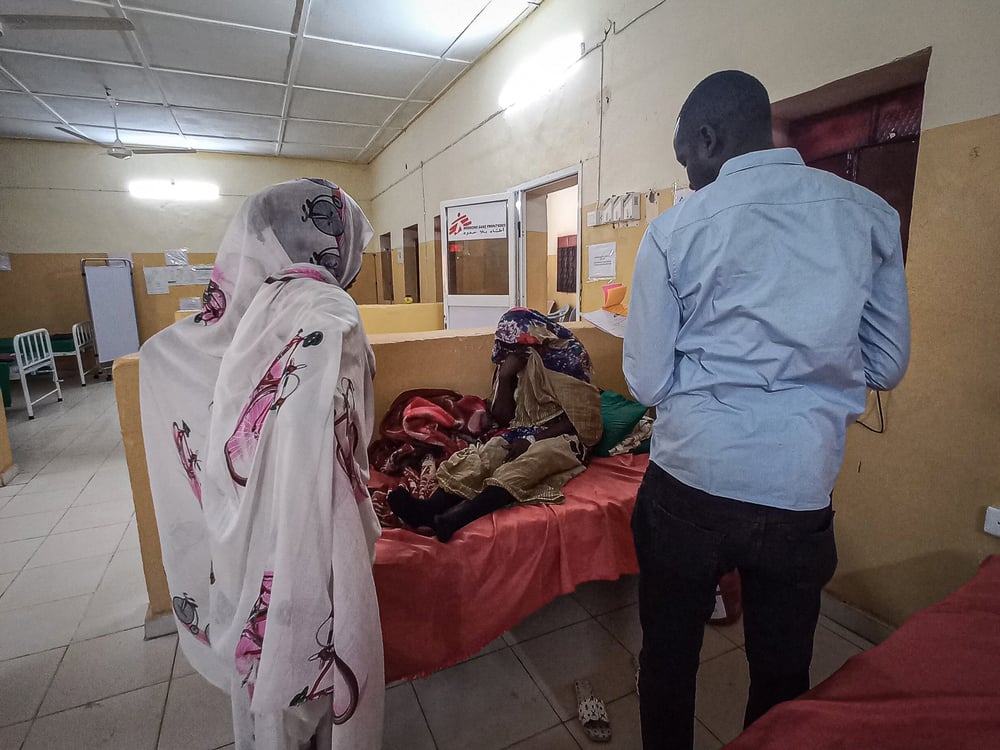MSF responds to Cholera in Sudan: ‘He didn’t know he was going to live’
A cholera outbreak is gripping across several states of central and eastern Sudan bringing yet more risk, death and misery to people already bruised by the country’s brutal war. Cholera adds an additional challenge to the crisis amidst mass displacement, insecurity, and difficulties accessing medical care amid a humanitarian response that is far below what is needed.
When an emergency hits everyone, whether medical or non-medical, staff often need to drop what they’re doing and work together to save lives. Angela Giacomazzi is a human resources coordinator, working in Tanedba, Gedaref state. Below Angela describes the evening of Sep. 1.
One night I was working around 9:00 PM with a couple of colleagues. As always in Doctors Without Borders/Médecins Sans Frontières (MSF), we have very long nights and very early mornings.
We received an alert that a car carrying five suspected cholera cases, was coming to our hospital.
Unfortunately, on the way to the hospital one of the people had passed away in the car. The other four cases were serious, but the car wasn’t coming here anymore, it had gone back to the village with the dead body.
While an ambulance went to pick up the patients, the team and I went to prepare everything we would need for when the patients arrived. The cholera treatment centre was already completely full so we needed to find new beds from wherever we could.
Everyone was on their feet, ready to respond to this new emergency.
When the four patients arrived, we realized that two of them were very critical. One was a kid who was also malnourished. Malnourished kids always look so fragile and cholera can really push their lives to the extreme.
When you see them in those conditions you find a strength in yourself that you didn’t know you had. You become fast, you become efficient and you become the best person that you can ever imagine to be.
Everything was happening automatically: everyone was in the right place at the exact moment, doing the exact thing that was needed to get these people into hospital and to take care of them. All of us complementing each others actions in a frantic race against the clock, because this little one was bad, but at least she was stable.
One adult male was in shock, he was unconscious. This is how you die of cholera, dehydration causes the body to go into shock. When the body reaches that point after a few minutes it’s already too late. You are never coming back.
We run out of giving sets and we were running out of staff. It was pretty crazy; in those five minutes a lot happened. Everything was very quick, I brought a box of fluids, the last box, into the ward and as I arrived I saw the patient who had been unconscious was now conscious, he was okay.
Those 5 minutes between his arrival and his resuscitation. Through the, I don’t know, 10 liters of IV infusion, we’d saved him and suddenly, covered as I was in sweat and mud, I realized that we had made it and that nobody had died out of the group who made it to hospital. All of four of them were stable.
I realised that the patient who had been unconscious didn’t know he was going to live. Even though he was awake he still didn’t know. His face and his breathing were really showing so much panic. And fear.
He met my eyes with a very questioning look and I smiled at him. And I nodded, because I wanted to let him know that everything was going to be all right. He looked at me and he nodded back at me, nodding in response.
And in that moment, all those early mornings and late nights, they made so much sense.
A few days later Angela travelled to village 5 in Gedaref state to launch a recruitment process to hire more staff to support the cholera response. There she was reunited with Aldokhri Idris Abdallah, 24, the patient who she saw regain consciousness. Below Aldokhri describes his experience.
When I was sick my family took me to the hospital in the village then the doctor in that PHCC referred me to MSF. When I got there [the cholera treatment centre] I was unconscious, I could not even open my eyes. They received me very well and they started giving me fluids. All the doctors did a very good job, they did everything for me and I got well so fast.
Thank God I am now fully recovered, I am one hundred percent okay. I entered very tired into the MSF clinic and I came out in a very good condition and healed. I will share this message to other people, when they get sick I will help them to go to the MSF clinic.
I wish all the best for all the MSF team and God bless you all.

